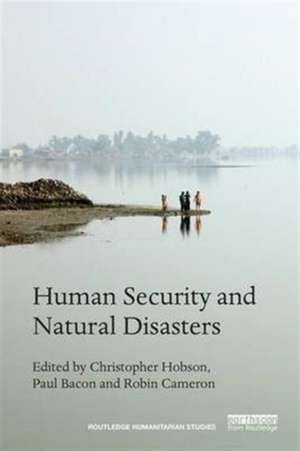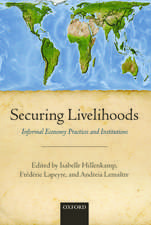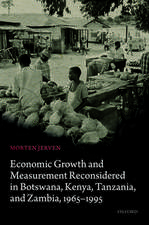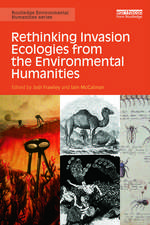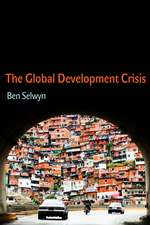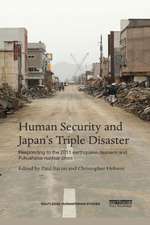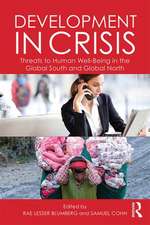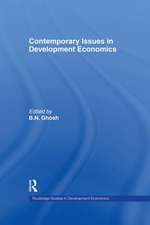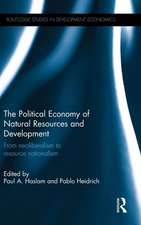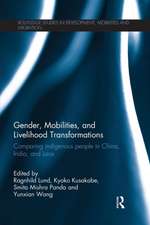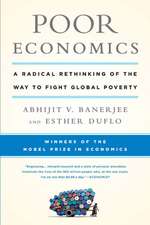Human Security and Natural Disasters: Routledge Humanitarian Studies
Editat de Christopher Hobson, Paul Bacon, Robin Cameronen Limba Engleză Paperback – 24 apr 2016
In looking at natural disasters, this book also refines the human security approach. It does so through developing its previously unexplored interdisciplinary potential. This volume explicitly seeks to bring the human security approach into conversation with contributions from a range of disciplines: development, disaster sociology, gender studies, international law, international relations, philosophy, and public health. Collectively these scholars unpack the "human" element of "natural" disasters. In doing so, an emphasis is placed on how pre-existing vulnerabilities can be gravely worsened, as well as the interconnected nature of human security threats. The book presents a variety of case studies that include the Indian Ocean tsunami, Hurricane Katrina, the 2010 Haiti earthquake, and the 2011 "triple disasters" in Japan.
| Toate formatele și edițiile | Preț | Express |
|---|---|---|
| Paperback (1) | 483.49 lei 6-8 săpt. | |
| Taylor & Francis – 24 apr 2016 | 483.49 lei 6-8 săpt. | |
| Hardback (1) | 1053.95 lei 6-8 săpt. | |
| Taylor & Francis – 19 mar 2014 | 1053.95 lei 6-8 săpt. |
Din seria Routledge Humanitarian Studies
-
 Preț: 153.68 lei
Preț: 153.68 lei -
 Preț: 301.95 lei
Preț: 301.95 lei -
 Preț: 259.91 lei
Preț: 259.91 lei -
 Preț: 281.10 lei
Preț: 281.10 lei -
 Preț: 281.42 lei
Preț: 281.42 lei -
 Preț: 310.22 lei
Preț: 310.22 lei -
 Preț: 303.31 lei
Preț: 303.31 lei -
 Preț: 257.81 lei
Preț: 257.81 lei -
 Preț: 344.46 lei
Preț: 344.46 lei -
 Preț: 384.44 lei
Preț: 384.44 lei -
 Preț: 280.89 lei
Preț: 280.89 lei -
 Preț: 385.54 lei
Preț: 385.54 lei -
 Preț: 441.54 lei
Preț: 441.54 lei - 18%
 Preț: 1007.06 lei
Preț: 1007.06 lei -
 Preț: 416.22 lei
Preț: 416.22 lei -
 Preț: 465.91 lei
Preț: 465.91 lei -
 Preț: 436.14 lei
Preț: 436.14 lei -
 Preț: 389.38 lei
Preț: 389.38 lei -
 Preț: 382.18 lei
Preț: 382.18 lei -
 Preț: 386.81 lei
Preț: 386.81 lei - 16%
 Preț: 335.96 lei
Preț: 335.96 lei -
 Preț: 476.86 lei
Preț: 476.86 lei -
 Preț: 389.66 lei
Preț: 389.66 lei - 18%
 Preț: 1162.08 lei
Preț: 1162.08 lei -
 Preț: 467.65 lei
Preț: 467.65 lei -
 Preț: 416.22 lei
Preț: 416.22 lei -
 Preț: 387.16 lei
Preț: 387.16 lei - 17%
 Preț: 258.50 lei
Preț: 258.50 lei - 18%
 Preț: 1054.71 lei
Preț: 1054.71 lei - 31%
 Preț: 764.20 lei
Preț: 764.20 lei
Preț: 483.49 lei
Nou
Puncte Express: 725
Preț estimativ în valută:
92.53€ • 96.24$ • 76.39£
92.53€ • 96.24$ • 76.39£
Carte tipărită la comandă
Livrare economică 15-29 aprilie
Preluare comenzi: 021 569.72.76
Specificații
ISBN-13: 9781138688001
ISBN-10: 1138688002
Pagini: 196
Dimensiuni: 156 x 234 x 17 mm
Greutate: 0.32 kg
Ediția:1
Editura: Taylor & Francis
Colecția Routledge
Seria Routledge Humanitarian Studies
Locul publicării:Oxford, United Kingdom
ISBN-10: 1138688002
Pagini: 196
Dimensiuni: 156 x 234 x 17 mm
Greutate: 0.32 kg
Ediția:1
Editura: Taylor & Francis
Colecția Routledge
Seria Routledge Humanitarian Studies
Locul publicării:Oxford, United Kingdom
Public țintă
PostgraduateCuprins
1. Incorporating Natural Disasters into the Human Security Agenda 2. Human Security after the shock: Vulnerability and Empowerment 3. Human Security and Disasters: What a Gender Lens Offers 4. The Ethics of Disaster and Hurricane Katrina: Human Security, Homeland Security, and Women’s Groups 5. Responding to chronic disease needs following disasters: A rethink using the Human Security approach 6. State Negligence before and after Natural Disasters as Human Rights Violations 7. Human Security in the Face of Dual Disasters 8. Linking disasters: human security, conflict and the 2004 Indian Ocean tsunami 9. Exit Strategy: Human Security, the Social Contract and Liquid Governance in Haiti’s Post-Earthquake Reconstruction 10. A More "Human" Human Security: The Importance of Existential Security in Resilient Communities 11. Human Security and Fortuna: Preparing for Natural Disasters
Recenzii
The human security concept compels us to question prevailing norms and institutions at every level in order to understand why certain individuals and communities fall victim to deprivation and abuse. This excellent collection takes the human security debate forward by focusing upon natural disasters, an area that has been very much under-explored. It is global in outlook and theoretically sophisticated, and it deserves to be read widely for its diverse and authoritative insights.
–Edward Newman, University of Leeds, UK
Freedom from want and freedom from fear, the basic tenets of human security, are never threatened more than when a disaster strikes. At a time when the UN has committed to mainstreaming human security across its policies, this book provides essential insights into how human security can help deal with natural disasters. Rich in their analyses and insightful in their conclusions, the contributions show clearly the potential of human security to shape state responses.
–Matthias C. Kettemann, University of Graz, Austria
A very important book that sheds new light on questions of human security and natural disasters, especially with regard to gender-related issues, public health responses and human rights issues. A wide range of case studies ranging from the Haiti earthquake, Indian Ocean tsunami to Hurricane Katrina bring the reader close to cutting edge critical research on how natural disasters severely affect human security.
–Geoff Wilson, University of Plymouth, UK
This important book, emerging in response to Japan's triple disasters of 2011, draws our attention to the relationship between natural disasters and human security. Aside from illustrating how disasters threaten human security, this volume points to the complex inter-relationship between disasters themselves, the international structural political and economic arrangements that worsen or complicate a response to them, and 'on-the-ground' dynamics of vulnerability, adaptive capacity and resilience within particular communities. This rich set of essays provides one of the more nuanced accounts of a broadened conception of human security, while challenging us to rethink key institutions and practices of 'security' more broadly. As natural disasters increase in intensity and frequency with dynamics of climate change, for example, making sense of how they might be incorporated and approached within current or new institutions will become an ever more urgent enterprise.
–Matt McDonald, The University of Queensland, Australia
–Edward Newman, University of Leeds, UK
Freedom from want and freedom from fear, the basic tenets of human security, are never threatened more than when a disaster strikes. At a time when the UN has committed to mainstreaming human security across its policies, this book provides essential insights into how human security can help deal with natural disasters. Rich in their analyses and insightful in their conclusions, the contributions show clearly the potential of human security to shape state responses.
–Matthias C. Kettemann, University of Graz, Austria
A very important book that sheds new light on questions of human security and natural disasters, especially with regard to gender-related issues, public health responses and human rights issues. A wide range of case studies ranging from the Haiti earthquake, Indian Ocean tsunami to Hurricane Katrina bring the reader close to cutting edge critical research on how natural disasters severely affect human security.
–Geoff Wilson, University of Plymouth, UK
This important book, emerging in response to Japan's triple disasters of 2011, draws our attention to the relationship between natural disasters and human security. Aside from illustrating how disasters threaten human security, this volume points to the complex inter-relationship between disasters themselves, the international structural political and economic arrangements that worsen or complicate a response to them, and 'on-the-ground' dynamics of vulnerability, adaptive capacity and resilience within particular communities. This rich set of essays provides one of the more nuanced accounts of a broadened conception of human security, while challenging us to rethink key institutions and practices of 'security' more broadly. As natural disasters increase in intensity and frequency with dynamics of climate change, for example, making sense of how they might be incorporated and approached within current or new institutions will become an ever more urgent enterprise.
–Matt McDonald, The University of Queensland, Australia
Descriere
This book develops human security not only through extending it to natural disasters, but also by demonstrating how it can be developed by adopting an interdisciplinary approach. To date, the interdisciplinary dimension of human security has not received sufficient attention. The book demonstrates the value of drawing on a wide range of voices and examines the vulnerability of social groups and communities in the event of a disaster, and how they collectively empower themselves to prevent, respond to and recover from disasters.
